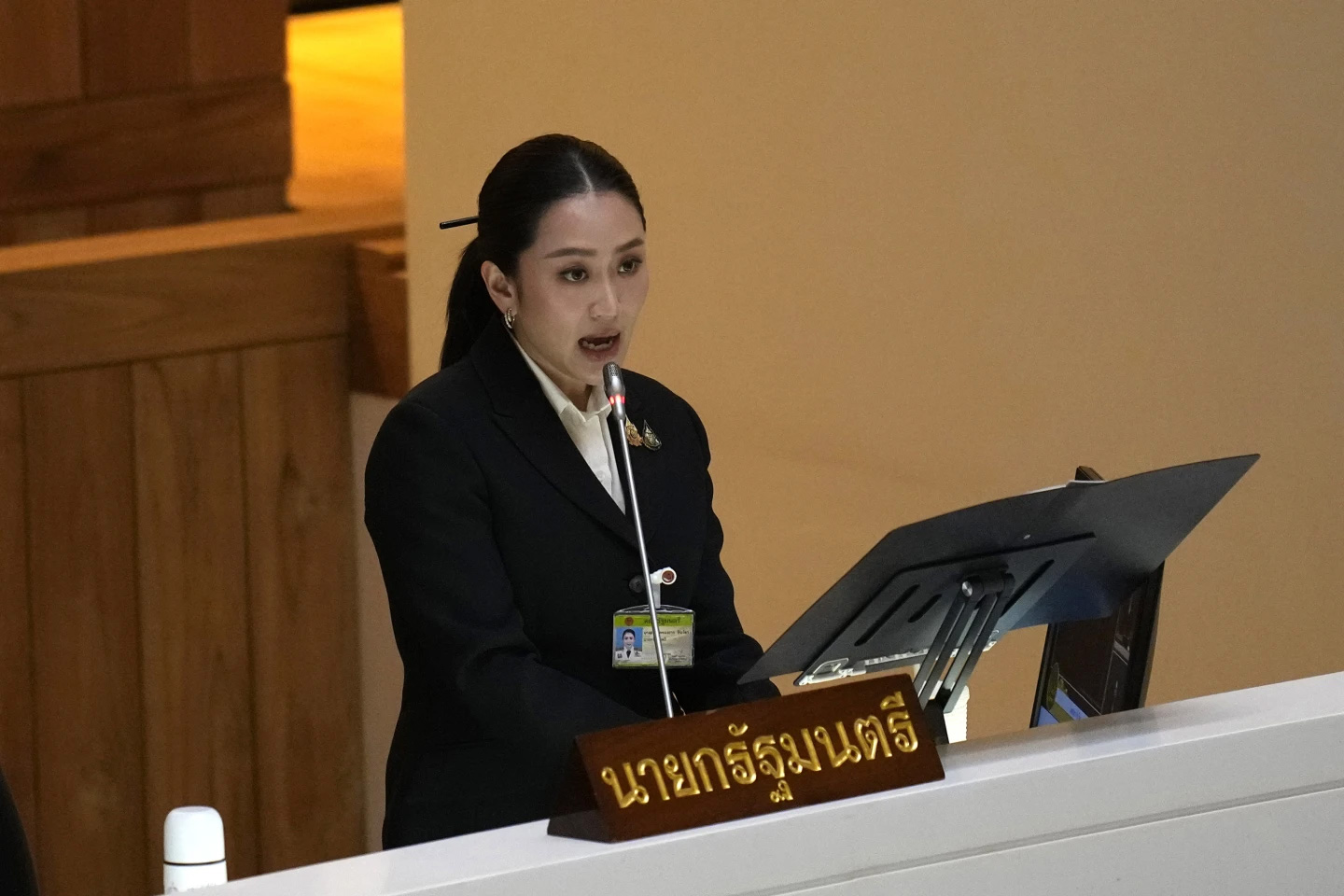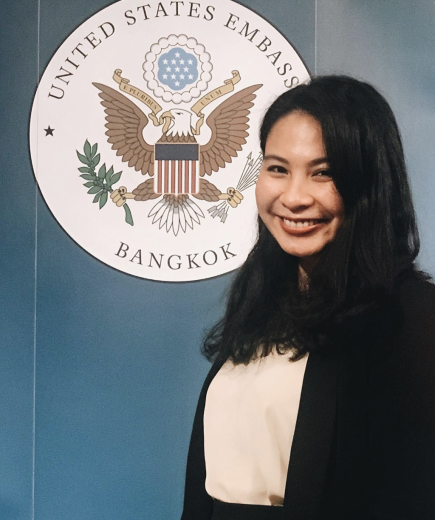Thailand Prime Minister Paetongtarn Shinawatra's Policy Statement

On September 12, the newly sworn-in Thai Prime Minister Paetongtarn Shinawatra announced her policy statement to the Parliament regarding the Thai government's plans for the next three years. Headlining her speech with plans to provide US$13.4 billion in direct cash transfers to jumpstart the economy, Prime Minister Shinawatra’s hour-long speech touched on some key policy topics.
Overview of Policies
In the initial phase of the government’s policy statement, the Prime Minister outlined nine key challenges that Thailand is currently facing. These include household debt and income inequality, an aging demographic population, drug abuse and online crime, liquidity issues for SMEs, technological changes and international trade competition, global climate change, long-standing political instability, inefficient bureaucracy and geopolitical challenges. The administration proposed ten policies to address these challenges, as follows:
Debt Restructuring Initiative
The government will restructure debt by working with other governments, commercial, and asset management organizations to address informal debt, including loans for housing and vehicles. The goal is to lessen the financial strain on homes and individuals. This involves negotiating home and auto loan refinancing with state-owned financial institutions, commercial banks, and asset management firms. The government is also developing programs to address unofficial debt, such as starting a debt counseling service and offering debt relief to debtors who are at risk.Support for Small and Medium-Sized Enterprises (SMEs)
The government will protect small and medium-sized enterprises from international competition, particularly via online platforms. Measures include providing financial assistance such as low-interest loans and grants to help SMEs digitalize and compete more effectively. Regulatory reforms will also be introduced to ensure fair competition in the e-commerce sector.Energy and Utility Cost Reduction
The government aims to improve energy security and to lower public energy bills by creating a strategic petroleum reserve and reducing dependence on imported oil. Negotiations with Cambodia are underway to explore new natural gas in the neighboring countries' overlapping maritime area. Additionally, a one-price mass transit system will be implemented within Bangkok to reduce commuting costs and increase public transportation accessibility.Integrate Informal and Underground Economies into the Tax System
The government will create new revenue streams by bringing the informal and underground economy into the tax system. It is anticipated that this could generate more than 50% of GDP. The additional revenue will be used to allocate resources for education, public health, and public utilities, as well as to subsidize the basic expenses of citizens. The government will also update and modernize related laws to align with current circumstances.Stimulate Economic Activity through Digital Wallets
The government will focus on boosting economic activity, enhancing consumer confidence, and encouraging spending by promoting the use of digital wallets. The government will also aim to ease financial burdens and increase employment opportunities, with particular emphasis on vulnerable groups. This initiative aims to lay the foundation for a digital economy, develop a government data center to create policies that meet public needs, and increase access to funding for village and community development, as well as business opportunities.Modernize Agriculture with Advanced Technologies
The government will transform traditional agriculture into modern practices by adopting the concept of “Market-Driven Innovation for Increased Income.” This involves utilizing agricultural technology (Agri-Tech) such as precision agriculture and food technology to enhance careers in agriculture, fisheries, livestock, and related fields. The goal is to ensure food security, explore new market opportunities including halal foods, and revitalize the “Thai Kitchen to the World” policy. This policy aims to address global food security needs and increase the value of agricultural products, as well as improve farmers' incomes.Accelerate Tourism Promotion
The government will expedite efforts to boost tourism by continuing the successful streamline of visa processes to facilitate travelers. This includes targeting international event attendees (MICE) and digital nomads, who contributed 1.892 trillion baht to tourism revenue in 2023. The strategy involves promoting new tourism industries, expanding man-made attractions such as water parks, amusement parks, shopping centers, and entertainment complexes, as well as hosting global concerts, festivals, and sports events in Thailand.Comprehensive Drug Control Strategy
The government will tackle drug problems by addressing the root causes of drug production and distribution in collaboration with neighboring countries. Efforts will include intercepting drug smuggling, dismantling drug trafficking networks, and providing treatment and rehabilitation for drug users. A monitoring and support system will be established to prevent relapse and support reintegration into society.Strengthen Crime Prevention and Response
The government will intensify efforts to combat crime, including cybercrime, fraud, and transnational crime. Support will be provided to fraud victims in a timely manner through collaboration with neighboring countries and the creation of joint accountability mechanisms involving telecommunications companies and commercial banks.Enhance Social Welfare and Human Potential
The government will promote the development of social welfare and services in line with changing social conditions, ensuring equal opportunities and economic equity. Special focus will be given to vulnerable groups, including people with disabilities, the elderly, ethnic minorities, and stateless individuals. The aim is to ensure these groups can easily access state rights and benefits as provided by law.
The Prime Minister announced that the government has introduced mid- and long-term initiatives to improve Thailand's global competitiveness and set a foundation for future growth.
These initiatives include encouraging local expertise and creative culture to enhance the nation’s soft power, advancing emerging industries, and developing markets in green technology, digital innovation, healthcare, and wellness. The plans also involve upgrading the local automotive industry to HEVs, PHEVs and BEVs, implementing major infrastructure projects, particularly in digital technology, and promoting gender equality.
The full version of official policy statement can be accessed here (in Thai language).
Notable Projects
Maintain former Prime Minister Srettha Thavisin's signature digital wallet plan targeting vulnerable groups to stimulate the economy -- the scheme initially called for 50 million Thais to receive 10,000 baht (US$300) each through a smartphone application. Notably, the sign-up goal for this program has been down by 9 million people, falling short of the target of 45 million. The initiative has fewer registrations than the 45 million first anticipated, according to Finance Minister Pichai Chunhavajira. Some people may not know how to register, or they may find it inconvenient to do so.
Promote the US$30 billion Landbridge project in the south to connect the Indian Ocean with the South China Sea through transportation networks. In order to improve the flow of products and people between the two regions, a number of highways, railroads, and ports will be built as part of this project. Thailand's position as a regional logistics hub is expected to be strengthened and economic growth stimulated by the Landbridge project, which will lower transportation costs and improve logistics efficiency. Furthermore, the project is a component of a larger plan to link and cooperate regionally by integrating Thailand's transportation network with neighboring nations.
Building a 220 km high-speed railway line, which will connect three major airports in Thailand, namely Don Mueang International Airport, Suvarnabhumi Airport, and U-Tapao International Airport. This ambitious project aims to enhance connectivity between key transportation hubs, reducing travel times and improving the efficiency of the national transportation network. By linking these airports, the high-speed railway is expected to facilitate the movement of passengers and cargo, supporting the growth of tourism and trade. Additionally, the project is part of a broader strategy to develop Thailand's infrastructure and position the country as a regional logistics and aviation hub. The construction of the high-speed railway is anticipated to create numerous jobs and stimulate economic activity along the route.
Economic and Political Implications
On the economic front, the election of Prime Minister Paetongtarn Shinawatra marks a profound political transition with far-reaching consequences for Thailand's economic, political, and social environment. Her populist and interventionist leadership style are likely to highlight economic reforms, infrastructural development, and social welfare programs aimed at stimulating growth and reducing inequality. Economically, an emphasis on infrastructure investment, SMEs support, agricultural development and tourism promotion is anticipated to fuel economic growth and employment creation. These measures are part of a larger strategy to diversify the economy, entice international investment, and enhance Thai citizens' livelihoods.
Politically, the continuation of populist initiatives such as digital wallet distributions, debt restructuring, leveraging underground economy, and tax reforms are likely to increase public support for the administration. These policies are intended to provide direct assistance to residents, reduce financial burdens, and improve budgetary sustainability.
Socially, the emphasis on lowering energy and utility prices, promoting tourism, and developing entertainment complexes is likely to improve public welfare and boost economic activity. However, these projects must be carefully managed in order to mitigate any environmental and social consequences. Overall, Prime Minister Paetongtarn’s leadership has the potential to usher in a new age of economic progress and social welfare.
While her policies have the potential to create considerable good change, their successful implementation will necessitate careful planning, collaboration, and consideration of long-term viability. The government's ability to navigate these factors will be critical in defining Thailand's economic and social future.
Additional Commentaries
The Associated Press (AP), Thailand slumping economy is new leader Paetongtarn’s focus in her first parliamentary speech
Reuters, Key points of new Thai government’s policy statement
The Bangkok Post, PM announces policies as opposition criticizes progress
The Nation, Paetongtarn’s policies seen as crucial test for Pheu Thai’s future
Nikkei Asia, Thai PM Paetongtarn pleads for stability to stimulate economic revival











